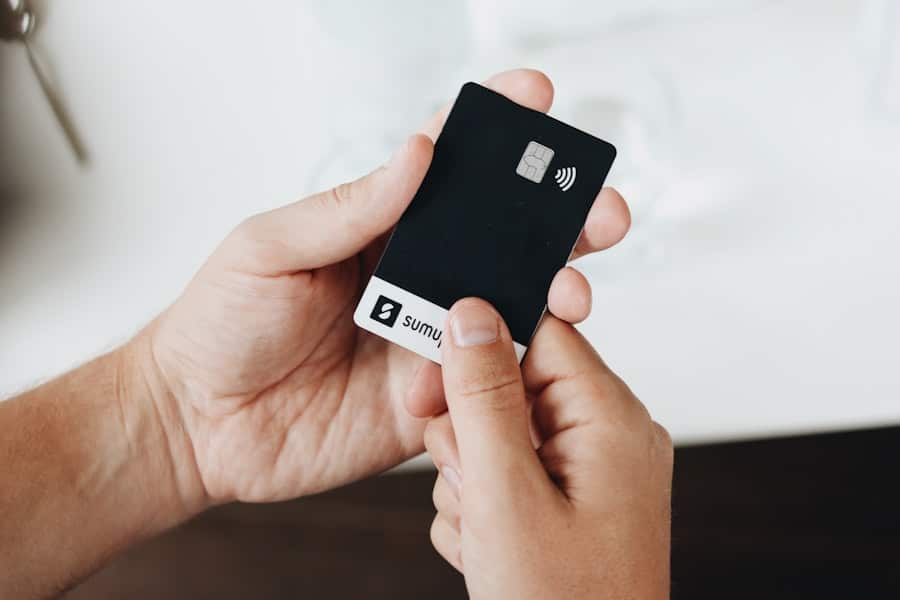In an increasingly digital world, the concept of identity has evolved significantly, particularly with the advent of decentralized platforms. Distributed identity refers to a model where individuals have control over their own identity data, rather than relying on centralized authorities such as governments or corporations. This shift is crucial in a landscape where data breaches and privacy concerns are rampant.
Traditional identity systems often require users to share sensitive information with multiple entities, leading to vulnerabilities and potential misuse of personal data. In contrast, distributed identity systems empower users by allowing them to manage their own credentials and share only the necessary information with third parties. The rise of decentralized platforms, particularly those built on blockchain technology, has catalyzed the development of distributed identity solutions.
These platforms leverage cryptographic techniques to ensure that identity data is secure, tamper-proof, and easily verifiable. By decentralizing the storage and management of identity information, users can maintain greater control over their personal data while also enhancing security. This paradigm shift not only addresses the shortcomings of traditional identity systems but also opens up new avenues for innovation in how identities are created, verified, and utilized across various sectors.
Key Takeaways
- Distributed identity in decentralized platforms allows for the creation and management of digital identities without the need for a central authority.
- Blockchain plays a crucial role in distributed identity by providing a secure and tamper-proof ledger for storing identity information.
- Implementing distributed identity presents challenges such as scalability and interoperability, but also opportunities for increased privacy and user control over personal data.
- Distributed identity has a significant impact on privacy and security by reducing the risk of data breaches and identity theft.
- Interoperability and standards are essential for ensuring that distributed identity systems can work seamlessly across different platforms and applications.
The Role of Blockchain in Distributed Identity
Blockchain technology serves as the backbone for many distributed identity systems, providing a secure and transparent framework for managing identity data. At its core, blockchain is a decentralized ledger that records transactions across multiple computers in a way that ensures the integrity and security of the data. In the context of distributed identity, blockchain enables users to create digital identities that are cryptographically secured and can be verified without relying on a central authority.
This decentralization mitigates risks associated with single points of failure and enhances trust among users and service providers. One of the key features of blockchain in distributed identity systems is the use of public and private keys. Users generate a pair of cryptographic keys: a public key that can be shared with others and a private key that remains confidential.
This mechanism allows individuals to prove their identity without revealing sensitive information. For instance, when accessing a service that requires age verification, a user can provide proof of their age without disclosing their full date of birth or other personal details. This selective disclosure capability is a significant advancement over traditional methods, where users often have to share more information than necessary.
Challenges and Opportunities in Implementing Distributed Identity

While the potential benefits of distributed identity are substantial, several challenges must be addressed for widespread adoption. One significant hurdle is the lack of regulatory clarity surrounding digital identities. Governments and regulatory bodies are still grappling with how to approach decentralized identity systems, which can lead to uncertainty for businesses and users alike.
Without clear guidelines, organizations may hesitate to invest in or adopt these technologies, stifling innovation and progress. Another challenge lies in user adoption and education. Many individuals are still unfamiliar with concepts like blockchain and distributed identity, which can create barriers to entry.
For these systems to gain traction, there needs to be a concerted effort to educate users about the benefits and functionalities of distributed identity solutions. Additionally, user-friendly interfaces and experiences are essential to ensure that individuals can easily manage their identities without feeling overwhelmed by technical complexities. Despite these challenges, there are numerous opportunities for innovation in the realm of distributed identity.
As organizations begin to recognize the importance of data privacy and user control, there is a growing demand for solutions that empower individuals. Companies that invest in developing user-centric distributed identity systems can differentiate themselves in the market while contributing to a more secure digital ecosystem. Furthermore, as more industries explore the potential of blockchain technology, collaborative efforts among stakeholders can lead to the establishment of best practices and standards that facilitate the adoption of distributed identity solutions.
The Impact of Distributed Identity on Privacy and Security
Distributed identity systems have profound implications for privacy and security in the digital age. By allowing individuals to control their own identity data, these systems reduce the risk of data breaches that often occur when centralized databases are compromised. In traditional models, personal information is stored in large repositories that are attractive targets for cybercriminals.
In contrast, distributed identity solutions minimize the amount of sensitive data stored in any single location, thereby enhancing overall security. Moreover, distributed identity promotes privacy through mechanisms such as zero-knowledge proofs. This cryptographic technique allows one party to prove knowledge of certain information without revealing the information itself.
For example, a user could prove they are over a certain age without disclosing their exact birthdate or any other identifying details. This capability not only protects individual privacy but also fosters trust between users and service providers, as users can engage with services without fear of exposing unnecessary personal information. However, while distributed identity enhances privacy and security, it also raises new questions about accountability and governance.
As individuals take on more responsibility for managing their own identities, there is a need for frameworks that ensure users understand their rights and obligations within these systems. Additionally, mechanisms must be established to address potential misuse or fraudulent activities within decentralized networks. Striking a balance between user empowerment and accountability will be crucial as distributed identity systems continue to evolve.
Interoperability and Standards for Distributed Identity
For distributed identity systems to achieve their full potential, interoperability among different platforms is essential. Currently, various decentralized identity solutions exist, each with its own protocols and standards. This fragmentation can hinder seamless interactions between users and services across different ecosystems.
To address this issue, industry stakeholders must collaborate to establish common standards that facilitate interoperability while maintaining security and privacy. The World Wide Web Consortium (W3C) has been actively working on standards related to decentralized identifiers (DIDs) and verifiable credentials. These standards aim to create a framework that allows different systems to communicate effectively while ensuring that users retain control over their data.
By adopting widely accepted standards, organizations can build solutions that work together harmoniously, enabling users to manage their identities across multiple platforms without friction. Interoperability also extends beyond technical standards; it encompasses legal and regulatory considerations as well. As different jurisdictions adopt varying approaches to digital identity regulation, it becomes imperative for organizations to navigate these complexities while ensuring compliance with local laws.
Establishing global standards for distributed identity can help mitigate these challenges by providing a consistent framework that transcends geographical boundaries.
The Potential for Self-Sovereign Identity in Decentralized Platforms

Self-sovereign identity (SSI) represents a transformative vision for how individuals manage their identities in decentralized environments. SSI empowers users to own and control their personal data without relying on intermediaries or centralized authorities. This model aligns closely with the principles of distributed identity, emphasizing user autonomy and privacy.
In an SSI framework, individuals can create digital identities that are portable across various platforms while retaining full control over what information they share. The potential applications of self-sovereign identity are vast and varied. For instance, in the context of online services, users could create an SSI profile that includes verified credentials from educational institutions or professional organizations.
When applying for jobs or enrolling in courses, individuals could share only the relevant credentials without disclosing unnecessary personal information. This not only streamlines processes but also enhances trust between parties by providing verifiable proof of qualifications. Moreover, self-sovereign identity has significant implications for marginalized communities who may lack access to traditional forms of identification.
In regions where government-issued IDs are scarce or unreliable, SSI can provide individuals with a means to establish their identities digitally. By leveraging blockchain technology, these individuals can create verifiable identities that enable them to access essential services such as banking, healthcare, and education.
Use Cases for Distributed Identity in Various Industries
The versatility of distributed identity solutions allows them to be applied across numerous industries, each benefiting from enhanced security, privacy, and user control. In the financial sector, for example, banks can utilize distributed identity systems to streamline customer onboarding processes while ensuring compliance with Know Your Customer (KYC) regulations. By allowing customers to share verified credentials securely, financial institutions can reduce fraud risk while improving customer experience.
Patients could grant healthcare providers temporary access to specific information while retaining ownership over their data. This approach not only enhances patient privacy but also facilitates better coordination among healthcare professionals by ensuring they have access to accurate and up-to-date information when needed.
The education sector also stands to benefit significantly from distributed identity solutions. Educational institutions can issue verifiable credentials directly on a blockchain, allowing students to maintain ownership of their academic records throughout their lives. When applying for jobs or further education opportunities, students can easily share their verified achievements without relying on third-party verification services.
The Future of Distributed Identity: Trends and Predictions
As technology continues to advance at an unprecedented pace, the future of distributed identity appears promising yet complex. One notable trend is the increasing emphasis on user-centric design in developing distributed identity solutions. As organizations recognize the importance of user experience in driving adoption, there will be a concerted effort to create intuitive interfaces that simplify the management of digital identities.
Additionally, as regulatory frameworks evolve globally, we may see greater alignment between governments and industry stakeholders regarding digital identity standards. Collaborative initiatives aimed at establishing best practices will likely emerge as organizations seek to navigate the complexities of compliance while fostering innovation. Furthermore, advancements in artificial intelligence (AI) may play a pivotal role in enhancing distributed identity systems.
AI-driven algorithms could help identify patterns of fraudulent behavior or streamline verification processes by analyzing vast amounts of data quickly and accurately. In conclusion, while challenges remain in implementing distributed identity solutions effectively, the opportunities they present are vast and transformative across various sectors. As we move forward into an increasingly interconnected world, embracing distributed identity will be essential for fostering trust, enhancing security, and empowering individuals in managing their digital identities.
In a recent article discussing the future of distributed identity in decentralized platforms, it is important to consider the role of technology in streamlining workflows and increasing accuracy for tax preparers. This article explores the best software options available for tax professionals to enhance their efficiency and effectiveness. By leveraging innovative tools and platforms, tax preparers can better manage their clients’ information and ensure compliance with regulations. This aligns with the broader trend of utilizing technology to optimize processes and improve outcomes in various industries.
FAQs
What is distributed identity in decentralized platforms?
Distributed identity in decentralized platforms refers to the concept of individuals having control over their own digital identities, rather than relying on centralized authorities. It allows users to manage and share their personal information in a secure and private manner.
How does distributed identity work in decentralized platforms?
Distributed identity in decentralized platforms is typically based on blockchain technology, where users have a unique digital identity that is verified and stored on a distributed ledger. This allows for secure and tamper-proof identity management without the need for a central authority.
What are the benefits of distributed identity in decentralized platforms?
Some of the benefits of distributed identity in decentralized platforms include increased privacy and security, reduced risk of identity theft, and greater control over personal data. It also enables seamless and secure identity verification for various online transactions and interactions.
What are some examples of decentralized platforms using distributed identity?
Examples of decentralized platforms using distributed identity include blockchain-based identity management systems, decentralized social media platforms, and decentralized finance (DeFi) applications. These platforms aim to give users more control over their digital identities and personal data.
What are the challenges of implementing distributed identity in decentralized platforms?
Challenges of implementing distributed identity in decentralized platforms include scalability, interoperability with existing systems, and regulatory compliance. Additionally, ensuring user adoption and trust in these new identity management systems is also a challenge.

